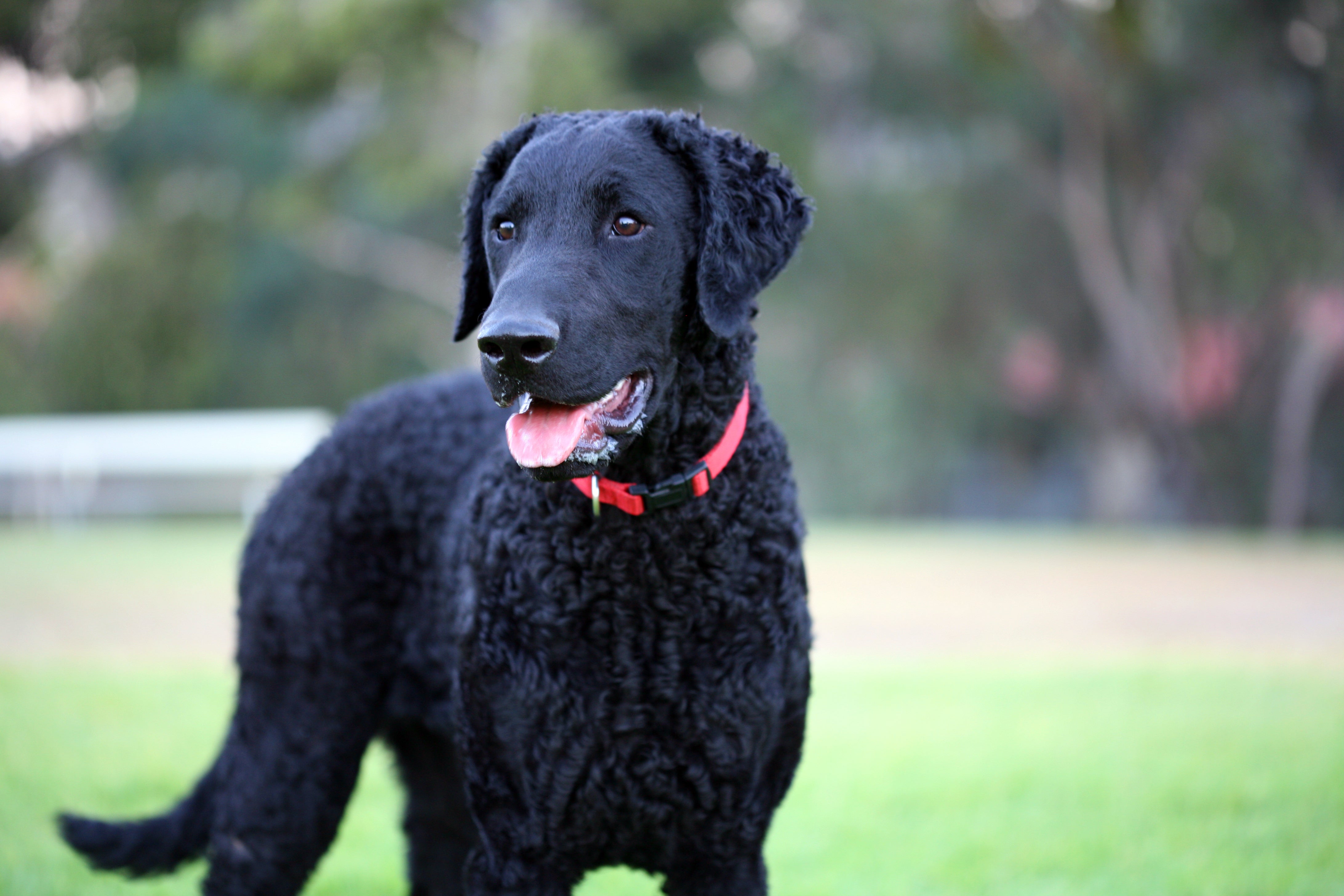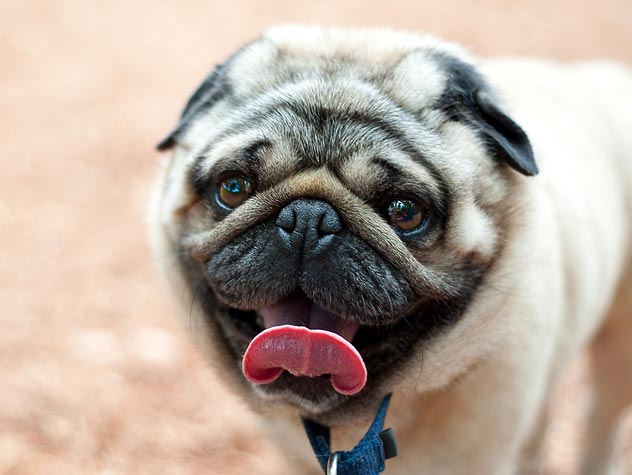Curly-Coated Retriever
Graceful and elegant, the Curly-Coated Retriever is agile and active. With longer legs than other retrievers, they feature tightly wound curls that protect against the elements. Confident and bold without being overly excitable, the Curly-Coated Retriever can seem aloof. In reality, they are affectionate, polite, and quiet dogs.
Breed characteristics carousel
Learn More
Need to Know
- Dog suitable for owners with some experience
- Basic training required
- Generally healthy breed
- Enjoys active walks
- Large dog
- Some drool
- Requires grooming once a week
- Chatty and vocal dog
- Barks and alerts to visitors/anything unusual
- Generally friendly with other dogs
- Gets along with other pets with training
- May need additional supervision to live with children
- Needs a large yard, either in suburban or rural areas
- Can be left alone occasionally with training
- AKC Registered Breed

Personality
Bright-eyed and ready for adventure, the brave Curly-Coated Retriever dog is the best of both worlds: active outdoors and calm inside. They are sensitive, gentle dogs that are easy to train and have eager personalities. They can be reserved with strangers.
One of the oldest retriever breeds, the Curly-Coated Retriever dog breed dates back several hundred years. They are likely crosses of the Old English Water Dog, Irish Water Spaniel, and a small Newfoundland, later bred with the water-retrieving Poodle. In the mid-1800s, the Curly-Coated Retriever dog was one of the most popular retrievers in England. They first came to America in 1907.
Consistent, loving, and affable, the Curly-Coated Retriever is ideal for anyone who lives an outdoorsy and active lifestyle. You’ll want to be unphased by mud and rain and be happy mucking through the woods no matter the weather. Families that are home most of the time provide the best environment for these dogs to succeed and be well-mannered members of the family.
The Curly-Coated Retriever needs vigorous exercise including off-leash running, retrieving exercises, swimming, exploring, training, and playing. They love to carry objects around, something that will need to be conquered with training. They want owners who engage with them on their walks.
A large, classic outdoorsy dog, the Curly-Coated Retriever will ideally be spending a lot of time swimming and around water, so a place for them to bathe and dry off is necessary. A large fenced-in yard is ideal for them for exercise and training, but they’ll also want access to a variety of walking routes to switch things up.
The thick curly coat of the Curly-Coated Retriever breed sheds. Owners will need to groom them to remove the dead hair during these times. Otherwise, brushing and combing are not recommended to avoid frizz. The coat can be dampened and the curls can be lightly massaged to keep them in tip-top shape. Trimming is also recommended.
The Curly Coated Retriever likes to train, so long as positive reinforcement-based methods are used. They love being with their owners and working with them, so anything that is engaging is their cup of tea. They enjoy dog sports and activities such as agility as well.
Good with children, the Curly-Coated Retriever can make an excellent family pet for those with older children in the home. The breed can be slow to mature, so younger children and very busy homes are not ideal.
The cost of a Curly-Coated Retriever from a breeder is significantly more than the cost of adopting one from a local shelter or rescue. The adoption fee usually covers additional items such as spaying or neutering, vaccines, and microchipping.

Learn more about feeding and caring for your Curly-Coated Retriever on Purina.
Did You Know?
- The Curly-Coated Retriever breed is one of the oldest retriever breeds.

